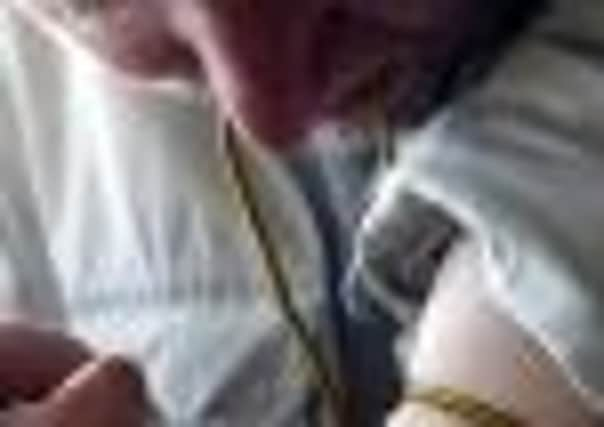Scotland’s war on drugs ‘is hugely inefficient’


The Scottish Drugs Strategy Delivery Commission’s (DSDC) first report on the national drugs strategy, “The Road To Recovery”, has criticised the lack of “institutional memory”.
Under the headline “Repeating The Past”, the commission said government has a tendency to “forget” lessons learned by previously ineffective initiatives and then effectively relaunch them.
Advertisement
Hide AdAdvertisement
Hide AdThe commission is an independent body of senior professionals from universities, industry, drugs charities, local authorities, police, an NHS board, a prison, and the Convention of Scottish Local Authorities.
The national drugs strategy was unveiled in May 2008, with ministers pledging £94 million over the next three years to tackle drug abuse. It signalled a shift away from the “management” of addicts to a bigger focus on rehabilitation and abstinence programmes.
The report stated: “Many DSDC members have been involved in national strategic work for over a decade and repeatedly raise concerns regarding the tendency for government to forget the processes and initiatives undertaken in the past and the lessons learned from this.
“New initiatives can reflect a relaunch of previous work, some of which may not have been effective. This pattern may reflect turnover of senior staff and ministers. As well as being demoralising for the field, this is hugely inefficient.
“DSDC recommends that the Scottish Government takes steps to improve its institutional memory.”
The commission also criticised the separation of drugs and alcohol issues by the Scottish Government and previous administrations.
The report stated that the national advisory committees, the Scottish Advisory Committee on Drugs Misuse and the Scottish Ministerial Advisory Committee on Alcohol Problems, have all been kept separate, with different ministers and officials.
It added: “At every other level, including the local delivery system of ADPs [Alcohol and Drug Partnerships], it is clear that there are benefits and efficiencies from bringing these agendas closer together. DSDC recommends that the Scottish Government seriously considers how this could be achieved.”
Advertisement
Hide AdAdvertisement
Hide AdThe report contains 23 recommendations to the Scottish Government with the aim of increasing the impact of the initiatives to address Scotland’s drug problem.
DSDC chairman Dr Brian Kidd said: “The key difference between us and previous groups advising government is our independence from government and our specific role to scrutinise the delivery of an agreed drugs strategy: The Road To Recovery.
“We took a proactive approach by taking evidence throughout 2010-11, regarding a range of key priority areas: to improve the safety of children affected by substance misuse; how local treatment services are changing to make recovery more likely; and examined local and national governance and quality processes to consider what progress changes in the delivery system has delivered.”
A Scottish Government spokesman said: “We welcome this report which marks the conclusion of the first year of the commission’s work and agree with the broad thrust of its recommendations, which largely reflect our own observations of the significant progress that has been made since publication of The Road To Recovery in 2008. The commission has reminded us of the inefficiencies of past decades and the importance of ensuring that policies join up at all levels.
“The Road To Recovery and the government’s alcohol framework are just two examples of more cohesive policies involving government and stakeholders that are making a difference by more effective joined-up working.”
Latest figures have revealed that the cost of Scotland’s methadone prescription programme has increased by more than 25 per cent over the last decade, to £15m a year.
Prescribing rates rose by 9 per cent in the same period despite the new strategy to get addicts on the road to recovery.
The Drug Misuse Statistics report, published in December, also revealed that a total of 10,325 people entered drug treatment services in 2009-10, with two-thirds of those using heroin.